7 de julio 2021

Children of Exile: The Births “Sowing Hope” in the Camp of Nicaraguan Farmers

PUBLICIDAD 1M
PUBLICIDAD 4D
PUBLICIDAD 5D
Albanisa, BanCorp, DNP-Petronic, Caruna, Inversiones Zanzíbar, Difuso, El Goliat, Syditek.
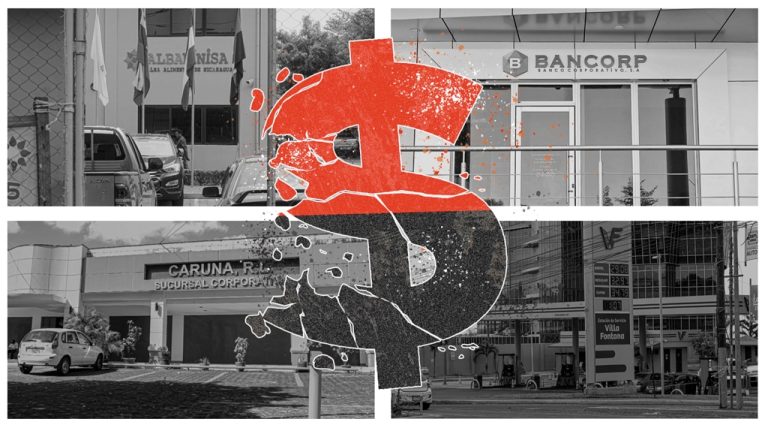
The sanctions imposed by the U.S Treasury Department took an alarming variant to directly target the financial muscle of the Ortega regime
On January 29, 2019, the sanctions imposed by the U.S Treasury Department took an alarming variant to directly target the financial muscle of the Ortega regime, which they pointed out to be built through the discretionary and non-transparent use of resources from the oil agreement between Venezuela and Nicaraguan state funds.
The sanction of the consortium Alba de Nicaragua S.A. (Albanisa) was announced that day, deriving from the sanctions approved against Petróleos de Venezuela (PDVSA). The Venezuelan conglomerate owned 49% of Albanisa, the holding company managed by members of the presidential family. This connection caused it to be hit by the sanctions against Pdvsa.
Since that day, the Treasury Department has sanctioned seven other companies and corporations linked to the Ortega regime, plus one public entity: the National Police, the main repressive arm of the dictatorship. A year and a half later, this is the current situation and operational status of these companies, according to their importance in the financial scheme of Ortega's regime.
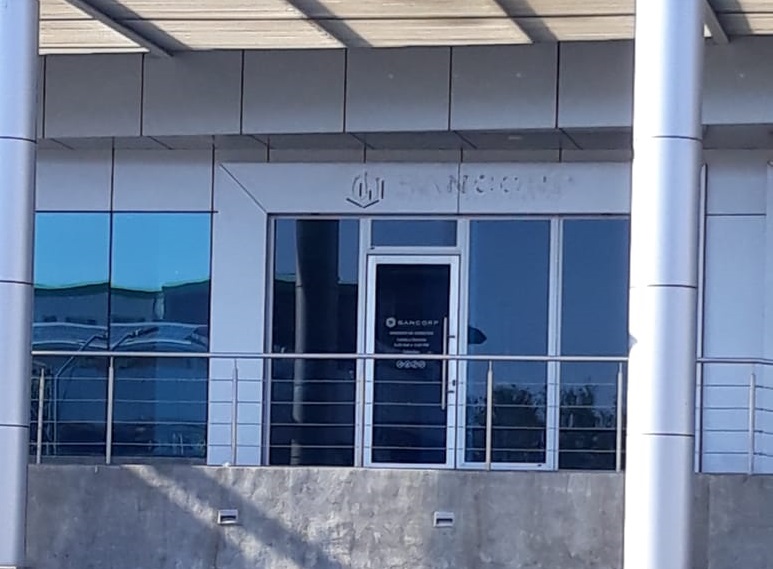
The letters on the fascade of the Bancorp headquarters were taken off after the US sanctions were applied. Photo: Courtesy
The sanction against the operations of Banco Corporativo (BanCorp) has had the greatest impact on the finances of the dictatorship, according to economists and representatives of the private sector consulted by CONFIDENCIAL.
The Treasury Department's designation eventually caused the bank to close operations, despite a failed attempt by the dictatorship to rescue it, taking advantage of its absolute majority in the National Assembly.
“It served several purposes. The main one was to remove itself from the national financial system and have its own financial arm for the business conglomerate they formed. It was an arm that allowed the transfer of capital, mainly of illicit origin”, describes economist Enrique Sáenz, who estimates that “the blow” of the sanctions “was lethal” and “direct to the financial artery of the regime, so much so that they ran to put the shield of nationalization to protect it, but they no longer had time and they had to close it”.
On March 7, 2019, the Assembly approved a law to nationalize BanCorp, arguing that the financial system urgently needed a state-owned bank, despite the existence of Banco Produzcamos. The law was approved, but due to the enormous risk it represented for the entire national financial system, it was not published in La Gaceta, the official government gazette, and therefore never went into effect. The Ortega administration did not provide any official explanation as to why the law was not published.
The commercialization of hydrocarbons was one of the businesses in which the dictatorship wanted to sink its fangs, and to achieve this, it used funds from the oil agreement to buy the operations of Distribuidora Nicaragüense de Petróleos (DNP, Nicaraguan Petrol Distributor), which were managed by a Swiss consortium.
The oil agreement with Venezuela turned DNP into Nicaragua's main hydrocarbon importer. However, the gradual agony of the oil agreement and the sanctions imposed by the United States caused DNP to cease to be the predominant operator in the national market. DNP managed to continue operating in a depleted form through some of its fuel stations, thanks to the bailout by the regime, always making use of parliamentary control.
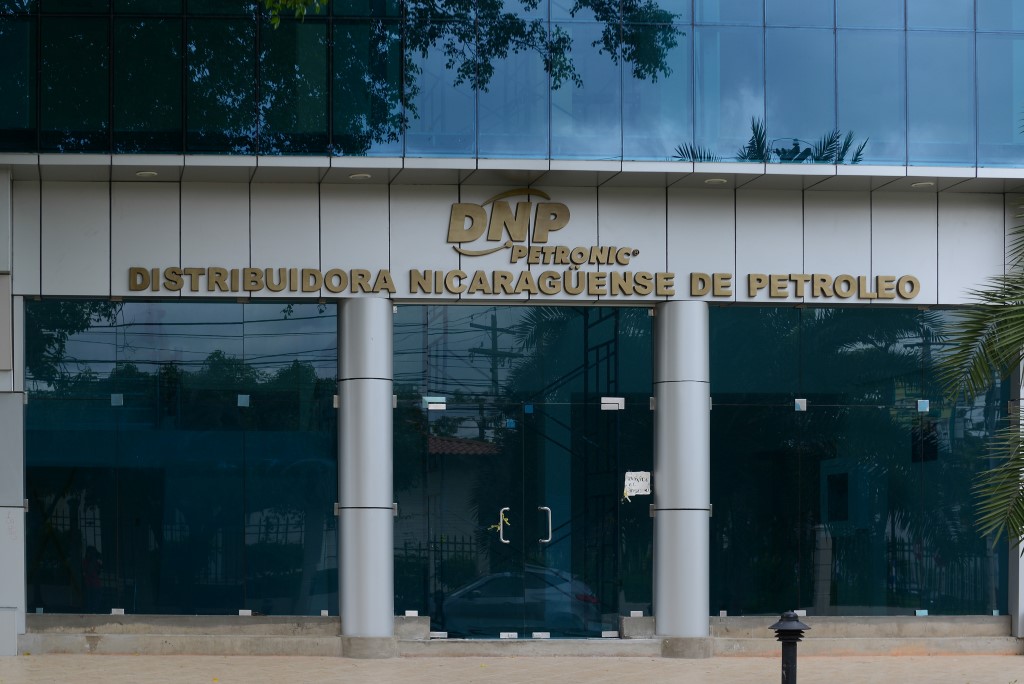
Managua, Nicaragua 08/23/13.- Facade of the Distribuidora Nicaragüense de Petróleo building. Photo: Carlos Herrera
On December 14, 2019, DNP was nationalized through a law approved by the National Assembly, two days after the Treasury Department sanctioned it together with Rafael Ortega Murillo, the son of the presidential couple, as well as the security company El Goliat and Inversiones Zanzibar.
In order to secure the hydrocarbon import and commercialization scheme operated by DNP, Ortega created four state companies. In another express parliamentary session, held on February 10, 2020, the deputies loyal to the dictatorship approved the formation of the Nicaraguan Gas Company (Enigas), the Hydrocarbon Storage and Distribution Plants Company (Eniplanh), the National Hydrocarbon Exploration and Exploitation Company (Enih) and the Nicaraguan Hydrocarbon Import, Transportation and Commercialization Company (Enicom).
Sáenz points out that “the volume of resources that were managed through DNP was another strong blow, although the collapse of the Venezuelan cooperation must be taken into account”.
He affirms this is why the Ortega regime “ rushed to create the four state companies in a single day, without consulting anyone, as a screen to continue in the fuel business”.
An obscure society appeared on the scene, derived from the sanctions on DNP, whose main role in the fuel scheme was to manage the stations that DNP was opening when it passed into the hands of Orteguismo. This operation was revealed by a journalistic investigation by newspaper La Prensa in 2012, and finally detailed in a special report by CONFIDENCIAL in 2015.
The communiqué from then Secretary of State Mike Pompeo - issued the same day as the sanctions against DNP, Inversiones Zanzibar and Rafael Ortega Murillo - details that: “Rafael Ortega is a key administrator of the Ortega family's financial resources, working alongside Nicaragua's previously sanctioned Vice President Rosario Murillo. Rafael Ortega uses at least two companies under his control, Inversiones Zanzibar, S.A. and Servicio De Protección y Vigilancia S.A., to generate profits, launder money and obtain preferential access to markets for the Ortega regime”.
The statement adds that “Rafael uses Inversiones Zanzibar to hide the transfer of profits from Distribuidora Nicaragüense de Petróleo, also designated today, and as a front company for the purchase of gas stations, in an attempt to hide the fact that the true owner of said gas stations is DNP”.
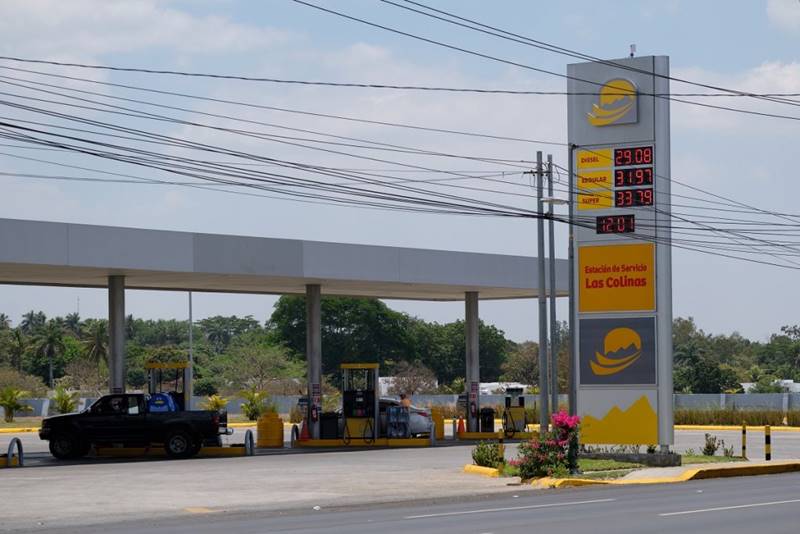
Inversiones Zanzibar operated 23 of Petronic's 69 service stations and its offices were located in the Villa Fontana gas station, next to the Invercasa building in Managua // Photo: Archive | Confidencial
In November 2019, a month before the sanctions, a special report by Expediente Público revealed that Inversiones Zanzibar operated 23 of Petronic's 69 service stations, according to the licenses issued for retailers by the Ministry of Energy and Mines (MEM) up until July 2018. The report added that even the offices were operating in the state-owned oil company's gas station located in the Villa Fontana residential area, next to the Invercasa building, in Managua. The great majority of these stations closed their operations after the DNP sanctions.
“What is left of the DNP is mainly the stations that they had before they were bought by Glencore. The stations managed by Inversiones Zanzibar, which were some of the main ones, are the ones that have not been able to reopen”, explains a private sector source who knows the hydrocarbons business but asks not to be named for fear of the repressive wave unleashed by the dictatorship. The source adds that after the sanctions and nationalization of the DNP, fuel imports and storage are now overseen by the Government.
The Caja Rural Nacional (Caruna) was a small savings cooperative linked to the Sandinista Front, which acquired a major level when the regime suddenly turned it into the cooperative in charge of managing the money generated by the oil agreement with Venezuela.
It was sanctioned on October 9, 2020, under the argument of being a “tool for the president of Nicaragua, Daniel Ortega, to divert money from ALBA de Nicaragua, SA (Albanisa), 2.4 billion in oil trusts and credit portfolios, used by the regime as economic resources to stay in power and pay for a patronage network”, according to the US Treasury Department,.
The sanction against Caruna implied another hard blow, due to the fact that the cooperative was the instrument used by the dictatorship to evade controls, following the sanctions against Albanisa and BanCorp.
“Caruna was a kind of consolidation of part of the regime’s capital. It had some trust contracts with BanCorp equivalent to almost 2 billion dollars. Since they were not deposits, they were not registered by Siboif. Not all of it was liquid capital, there were also investments, receivable accounts, among other instruments”, Sáenz points out.
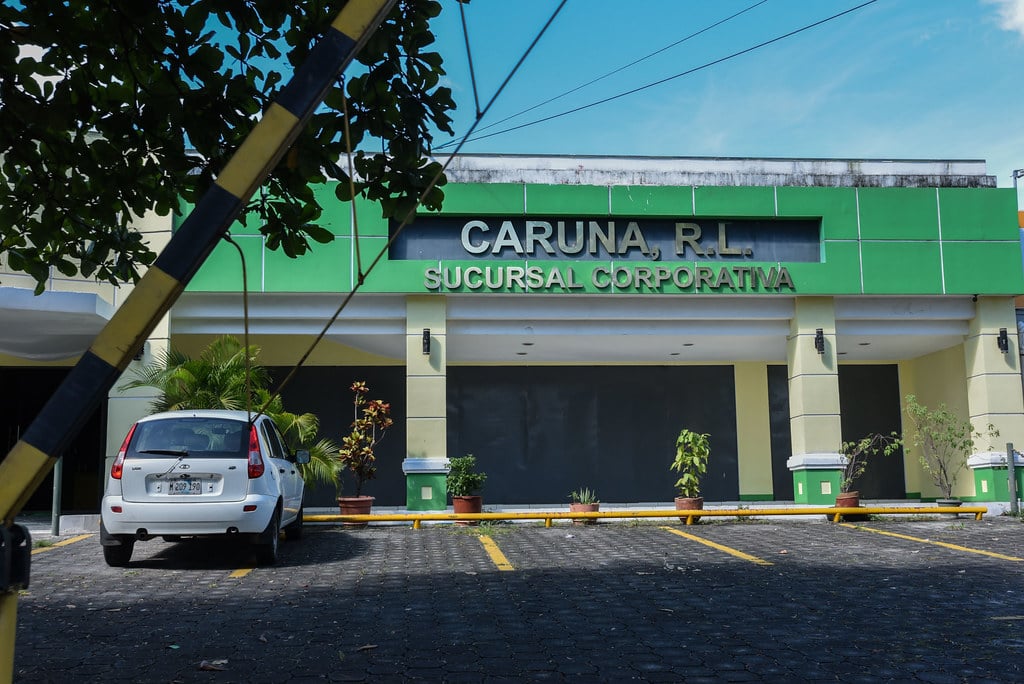
Sucursal de Caruna, en la Colonia Centroamérica, protegida con láminas de zinc. // Foto: Nayira Valenzuela
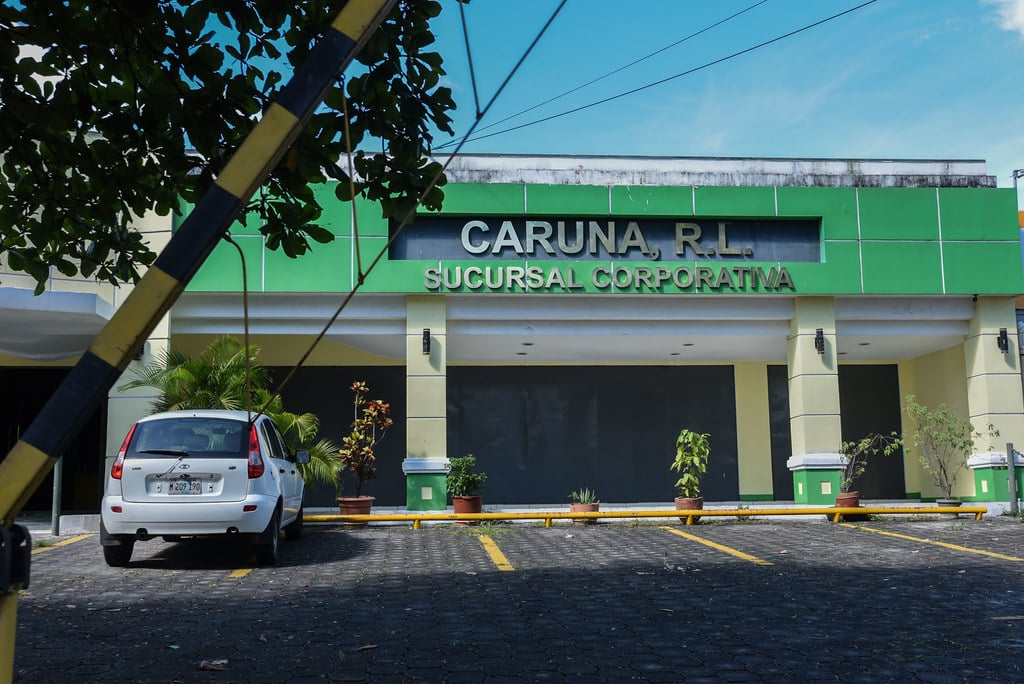
Caruna branch office in Colonia Centroamérica, protected with zinc sheets. Photo: Nayira Valenzuela
After the sanctions, Caruna's role diminished considerably, as did its range of operations. They had to close branches in the interior of the country and lost their credibility as a savings cooperative because they did not return the savings of the members that were affected by the closure of these branches.
However, there is one detail about Caruna's operations that remains a mystery, referring to its role as a lender to the State, with an amount that exceeded US$920 million. These debts were assumed as public debts by the Government of Daniel Ortega. At Caruna's headquarters, the justification to CONFIDENCIAL was that nobody could attend us.
For Albanisa, being the first sanctioned company meant being the first entity to leave the business scheme of the Ortega regime. “There is nothing left of Albanisa but the name and the business they conducted. All those Alba companies that you heard of before are practically no longer involved in anything in the country, with the exception of the electricity generation companies. They are still the main market operator at a domestic level in that area”, says the source from the private sector linked to the hydrocarbons sector.
Economist Enrique Sáenz notes that “Albanisa ended with the collapse of the oil agreement with Venezuela, which was what fed it”.
In his opinion, “that is where that box was emptied. The mystery is how those investments in which it (Albanisa) was involved remain, such as the site where the El Supremo Sueño de Bolívar refinery was supposedly going to be built”, referring to the project for which the late Hugo Chávez and Ortega laid the first stone in 2007, but now it is the refinery that never was.
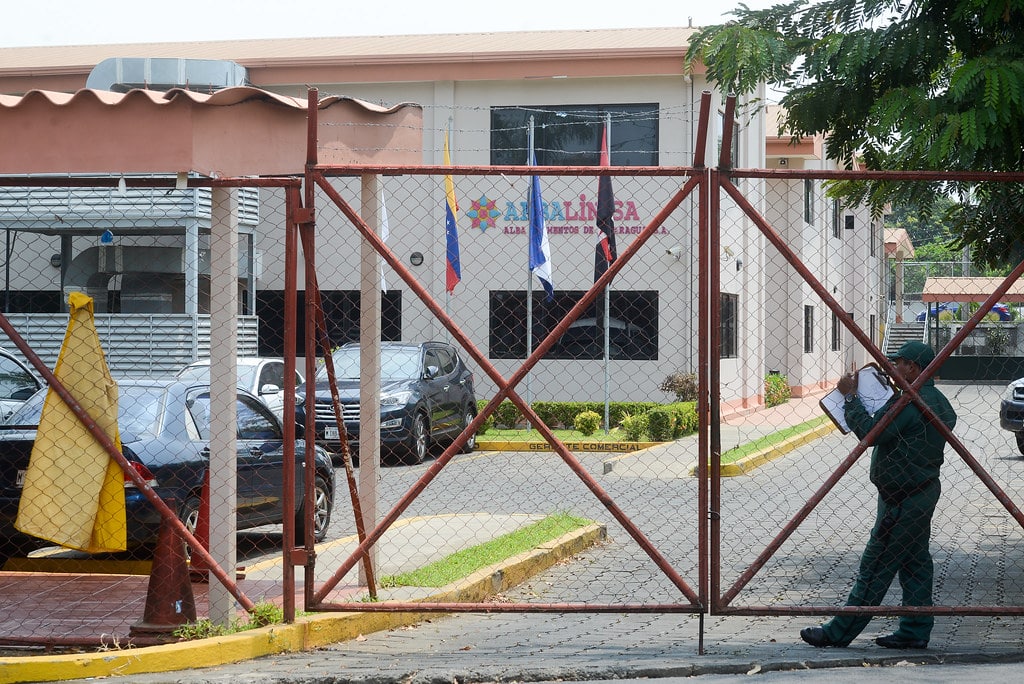
Albanisa's headquarters in Managua. Carlos Herrera / Confidential
Difuso is a company directly linked to Juan Carlos Ortega Murillo. Difuso, Syditek and the presidential couple's son were sanctioned on the same day: July 17, 2020. An investigation by the Latin American journalism platform Connectas reported that, between 2018 and 2019, three state institutions: Enatrel, the National Technological Institute and the Nicaraguan Institute of Tourism signed contracts with Difuso for the order of US$147,157. The investigation referred to contracts of state companies with organizations in which the children of Daniel Ortega and Rosario Murillo are involved, which together totaled almost one million dollars.
“Difuso operates mainly through contracts with state-owned companies and the monopoly of graphic advertising on buses. They continue to operate in a certain normal way. After the sanctions, you will never see Difuso in another situation like the one in the film ‘Drunk Wedding’”, said an executive linked to the advertising business, who also did not want to be quoted for fear of reprisals from the dictatorship.
Drunk Wedding is a film in which the Nicaraguan government invested 400,000 dollars from the National Treasury, which turned out to be a complete failure. An article in the New York Times revealed that, as part of the deal between the US distributor Paramount Pictures and the Nicaraguan Institute of Tourism (Intur), Difuso was required to be in charge of the audiovisual publicity of the film, which was supposed to become an engine to promote tourism in Nicaragua.
In the case of Servicio De Protección y Vigilancia SA, commercially known as El Goliat and Syditek Mundo Digital, these companies were hit by the Treasury Department's sanctions due to their links with José Mojica Mejía, a known front man of the presidential family. According to the sanction issued by the Treasury Department, these two companies are accused of “laundering money for the regime”.
El Goliat is a company whose main contractor is the State, offering protection and surveillance services in state entities and tourist centers administered by the Government and mayors' offices controlled by the Sandinista Front, which persists to this day.
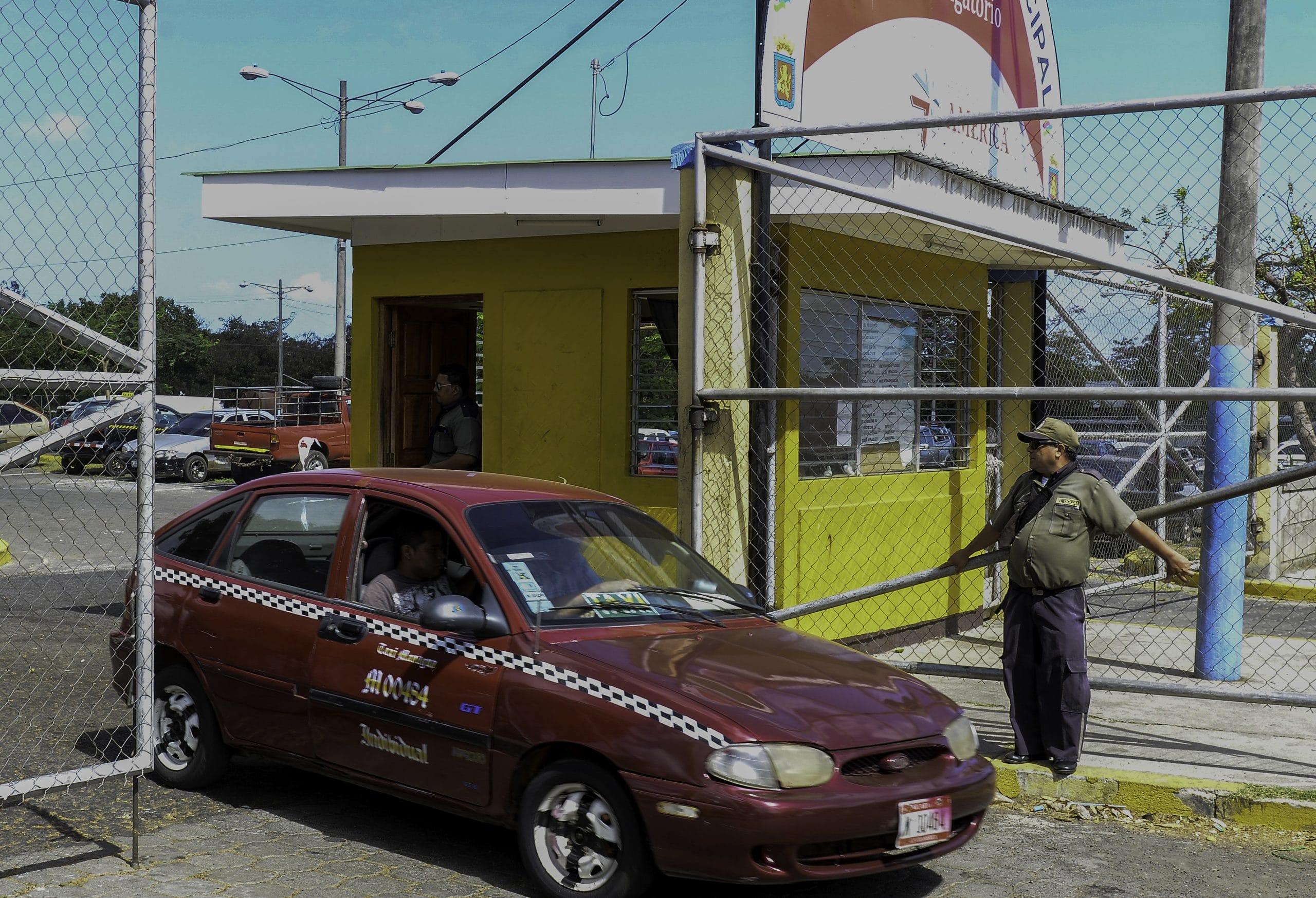
Two security guards of the El Goliat company guard the entrance of the vehicle depot in Managua, in 2015. Photo: Carlos Herrera
For example, in Managua, El Goliat is in charge of guarding the main sports facilities, such as the Dennis Martínez National Stadium, the Michelle Richardson swimming pool complex, the tennis courts of the Luis Alfonso Velásquez Park and the Alexis Argüello Sports Center. A special report by La Prensa, published in September 2019, revealed that the Managua Mayor's Office awarded it a contract for 10.1 million cordobas for the safeguarding of these sports centers through an irregular process.
In the case of Syditek Mundo Digital, whose store is located in the main street of Altamira, in Managua, it continues to operate normally as a retail center for the sale of computers and related accessories.
In a column published in the Nuevo Herald newspaper, renowned journalist Andrés Oppenheimer stated that the current sanctions scheme against the regime of Daniel Ortega will not be effective to make it yield on issues of civil rights and democracy. Therefore, he considered that this scheme should be modified.
“A much more innovative and effective strategy would be for the United States and Europe to initiate an international banking investigation to document the corruption of the Ortega family. Threatening Ortega with public exposure of his family’s shady business dealings would put much more pressure on him than economic sanctions,” wrote Oppenheimer, who interviewed Ortega in 2018, when the president was engaged in a campaign to clean up his image after the massacre of the citizen protests of the so-called April Rebellion.
For the columnist, Ortega is a character who does not care about the fact that he faces international isolation and the lack of political legitimacy due to his repressive policies and human rights violations.
“In addition to economic sanctions, the United States and democracies around the world should investigate the banking transactions of Camila (Ortega) and her siblings, who apparently run a large family business, taking advantage of their government connections. That would expose the corruption of the Ortega regime to the Nicaraguan people. And that is what dictators fear the most, much more than external sanctions”, Oppenheimer assured.
Last June 9, Camila Ortega Murillo was sanctioned by the State Department, being the fourth child of Daniel Ortega and Rosario Murillo to be sanctioned, after her brothers Rafael, Laureano and Juan Carlos, and Rosario herself. Together with Camila, the deputy and president of the Sandinista Front bench in the National Assembly, Edwin Castro; the president of the Central Bank of Nicaragua, Ovidio Reyes; and the director of the Military Social Security Institute (IPSM), Army Brigadier General Julio Rodríguez Balladares, were also sanctioned.
In total, 31 officials and operators of the regime have been sanctioned by the United States, and more than half a dozen of them are also sanctioned by the European Union and the governments of Canada, Switzerland and the United Kingdom.
Ortega and Murillo have complained about the sanctions, but last June 10 was the first time that the government issued a press release expressing its rejection and “energetic protest” against the imposed sanctions, which it described as “illegal, arbitrary, coercive and unilateral measures” dictated “against the Nicaraguan citizens whose only crime is to represent, very highly, the dignity and heroism of our people.”
This article was originally published in Spanish in Confidencial and translated by our staff
Archivado como:
PUBLICIDAD 3M
Confidencial es un diario digital nicaragüense, de formato multimedia, fundado por Carlos F. Chamorro en junio de 1996. Inició como un semanario impreso y hoy es un medio de referencia regional con información, análisis, entrevistas, perfiles, reportajes e investigaciones sobre Nicaragua, informando desde el exilio por la persecución política de la dictadura de Daniel Ortega y Rosario Murillo.
PUBLICIDAD 3D